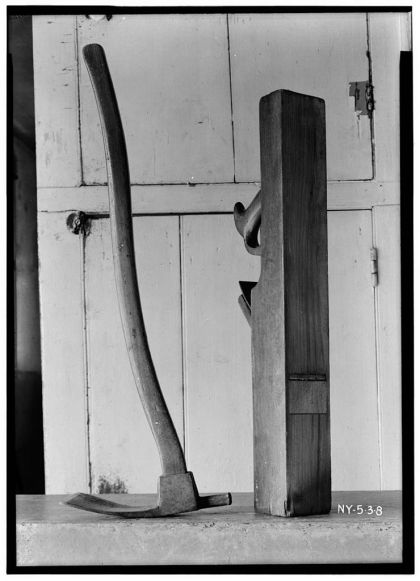
We have often thought that if masters properly comprehended the relation they sustain to their apprentices and employees, their pecuniary interest would not only be greatly enhanced, but that a positive good would be rendered to every branch of industry in which they are engaged, as well through a more harmonious concert of action as a superior social elevation given to the worthy class under them.
To our view, this relation is somewhat analogous to that existing between parents and children, so far as the development of their minds and the instilment of sound principles of morality and industry, the encouragement of skill in manipulation, and the attainment of knowledge are concerned. We believe the observation of a celebrated master, that no one is born without capacity for some branch of industry, is a just one, and that where stupidity exists it is nothing else but neglect of proper discipline and education in the youth of the person thus unfortunately deficient.
To establish this fact it needs no fresh arguments of ours to show how extremely ductile, how capable of government and restraint, and how susceptible of instruction human nature is, when approached in the proper spirit of kindness, dignity and respect, which stimulates zeal and ambition, and produces a corresponding return.
The first duty of a master should be to present in himself an example for imitation in the elements of industry, morality, system, and the other attributes which constitute a superior mechanic or workman. There are many apprentices who have so much of the spirit of self-reliance and genius that this example is not essentially necessary; but if we pursue the reflection, and for the certainty of the rule consider (what no man can fail to observe) the effect the characters of others of a superior rank have upon those immediately connected with them, it will be obvious to all that the master, in a great measure, impresses the inferior with the prominent traits of his character.
They should, moreover, observe and study the dispositions and minds of their apprentices, with a view of conciliating their regard and confidence, and through this means to establish a free and familiar intercourse, and render the task of instruction and development more simple and easy. As the apprentices advance in knowledge and skill, suitable evidences of appreciation and encouragement should be given them. This will stimulate their ambition and exertion, and create among them a worthy spirit of emulation.
Where the character of an apprentice is such as to require a tight rein upon his actions, and the deprivation of privileges, and other suitable punishments for idleness and misconduct, care should be observed that these curbs and punishments do not descend into such acts of tyranny as will destroy the spirit and ambition of the youth, and render him obstinate, unruly, and beyond all future influences of excellence and good.
Besides a thorough instruction in his trade or profession, and a sound and healthy education to otherwise render him fit for his social position in life, it should be the aim of a master to instil into his pupil all the scientific and other knowledge possible, even should such knowledge have no direct bearing upon the business or trade in which he is engaged. Such acts of interest, kindness, and confidence as these, and others of a corresponding character, cannot fail to produce the most marked beneficial results upon the interests of the master, and the happiness and condition of the grateful apprentice.
Scientific American – September 11, 1858
—Jeff Burks